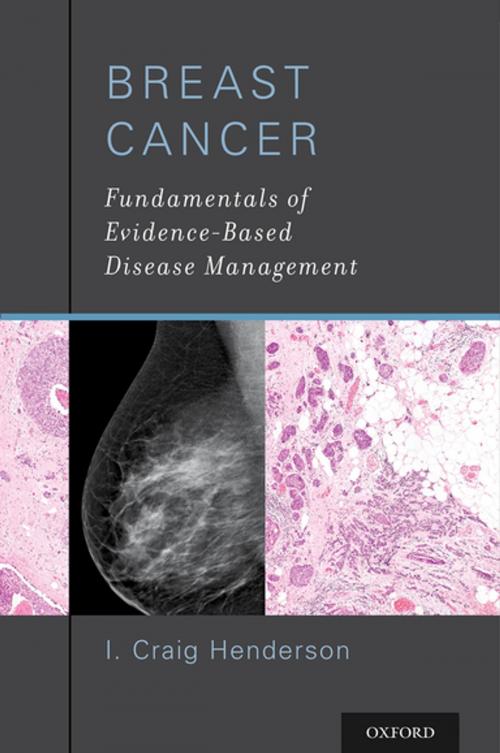Breast Cancer
Fundamentals of Evidence-Based Disease Management
Nonfiction, Health & Well Being, Medical, Specialties, Oncology| Author: | I. Craig Henderson, MD | ISBN: | 9780190297077 |
| Publisher: | Oxford University Press | Publication: | October 14, 2015 |
| Imprint: | Oxford University Press | Language: | English |
| Author: | I. Craig Henderson, MD |
| ISBN: | 9780190297077 |
| Publisher: | Oxford University Press |
| Publication: | October 14, 2015 |
| Imprint: | Oxford University Press |
| Language: | English |
Breast Cancer provides an in-depth understanding of the biology of breast cancer, the natural history of the disease, the use of molecular markers, the interpretation of clinical trial data, and the integration of multiple therapeutic modalities. The single most important fact about breast cancer is the great variation in its natural history and its responsiveness to therapy from one patient to another. The clinician must integrate an assessment of the patient's likely course based on clinical and pathological staging and laboratory studies with objective evidence on the benefits of therapy. The primary aim of this book is to provide the clinician with the tools to do just that. Outcomes of clinical trials and details about commonly used drug regimens, drug dosage, and the expected side effects are summarized in generous tables and figures. Medical terminology has been defined and descriptions of the evolution in our thinking and understanding of the disease are often given to provide perspective in the interpretation of evidence from current studies for busy clinicians and trainees alike.
Breast Cancer provides an in-depth understanding of the biology of breast cancer, the natural history of the disease, the use of molecular markers, the interpretation of clinical trial data, and the integration of multiple therapeutic modalities. The single most important fact about breast cancer is the great variation in its natural history and its responsiveness to therapy from one patient to another. The clinician must integrate an assessment of the patient's likely course based on clinical and pathological staging and laboratory studies with objective evidence on the benefits of therapy. The primary aim of this book is to provide the clinician with the tools to do just that. Outcomes of clinical trials and details about commonly used drug regimens, drug dosage, and the expected side effects are summarized in generous tables and figures. Medical terminology has been defined and descriptions of the evolution in our thinking and understanding of the disease are often given to provide perspective in the interpretation of evidence from current studies for busy clinicians and trainees alike.















